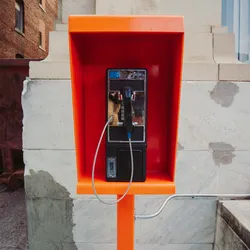
Level 1:
The FBI said public phone-charging stations can be dangerous. They may have bad programs that can take your information or hurt your phone. Be careful. Bring your own charger or battery instead of using public stations. If you need to use a public station, be careful. Look at it to see if it looks good. Only use your own cable if you can. Don’t type in passwords or card numbers. It’s better to be safe than sorry!
Level 2:
The FBI has warned that free public phone-charging stations could be dangerous for your phone and your personal information. These stations may have harmful software installed that can steal your data or harm your device. To keep yourself safe, the FBI suggests bringing your own charger or battery pack instead of using public stations. If you must use a public station, make sure it looks legitimate and only use your own charging cable if possible. Additionally, it is best to avoid entering any sensitive information, such as passwords or credit card numbers, while your phone is connected to the charging station. Remember to be cautious to protect yourself and your information!
Full Story:
The Federal Bureau of Investigation (FBI) has issued a warning regarding the risks of using free public phone chargers. These stations, according to the FBI, may include hazardous software that can steal your personal information or damage your phone. Here’s everything you need to know to keep yourself safe.
First and foremost, it is critical to comprehend the concept of a phone charging station. These are free public charging stations that can be found at airports, shopping malls, and other public places. They usually contain a range of cords and charging ports to accommodate various phone models.
While free phone charging may appear to be a convenience, the FBI warns that these stations can pose a security concern. Malicious software, or malware, can be simply installed on the charging station or the cords. This can be accomplished in a couple of minutes and is extremely difficult to detect.
Once deployed, the malware can perform a variety of functions. It has the capability of stealing personal information such as passwords and credit card data. It can potentially harm your phone by causing it to overheat or rapidly draining its battery.
To minimize these concerns, the FBI advises not utilizing public phone charging stations at all. Instead, they recommend bringing your own charger or portable battery pack. These are reasonably priced and can be found at most electronics retailers.
If you must use a public phone charging station, you can take certain precautions to reduce your risk. First, make sure the station appears legitimate. It’s advisable to avoid anything that appears strange or manufactured.
Second, if at all feasible, use your own charging wire. If you must use the charging station’s cable, thoroughly inspect it for evidence of tampering or damage.
Finally, while your phone is connected to the charging station, avoid inputting any important information such as passwords or credit card details. This will help to avoid the theft of your personal information.
To summarize, while free public phone charging stations may appear to be a convenient choice, they also pose a significant security concern. The FBI cautions that thieves can use these stations to install hazardous software that can steal your personal information or damage your phone. To be safe, avoid using these stations altogether or take efforts to reduce the risk. Remember, prevention is always preferable to treatment!
Questions:
What is the FBI’s warning about public phone-charging stations?
Why does the FBI suggest bringing your own charger or battery pack?
What are some precautions you can take when using a public phone-charging station?
Do you think free public phone-charging stations should be banned due to their potential risks?
In your opinion, what are some alternative solutions to free public phone-charging stations that are safe and convenient for users?
Fill In the Blanks:
malware, precautions, tampering, legitimate
Malicious software, or ________, can be simply installed on the charging station or the cords.
If you must use a public phone charging station, you can take certain ________ to reduce your risk.
First, make sure the station appears ________.
If you must use the charging station’s cable, thoroughly inspect it for evidence of ________ or damage.
Difficult Words:
Malware: software that is specifically designed to harm or disrupt computer systems or mobile devices, often used for stealing personal information or damaging devices.
Tampering: interfering with something in order to make unauthorized changes or alterations.
Precautions: actions taken in advance to prevent potential danger, harm or accidents from happening.
Legitimate: real, genuine or valid, not fake or false.
Sensitive information: information that is private, confidential, or personal, such as passwords or credit card numbers.




